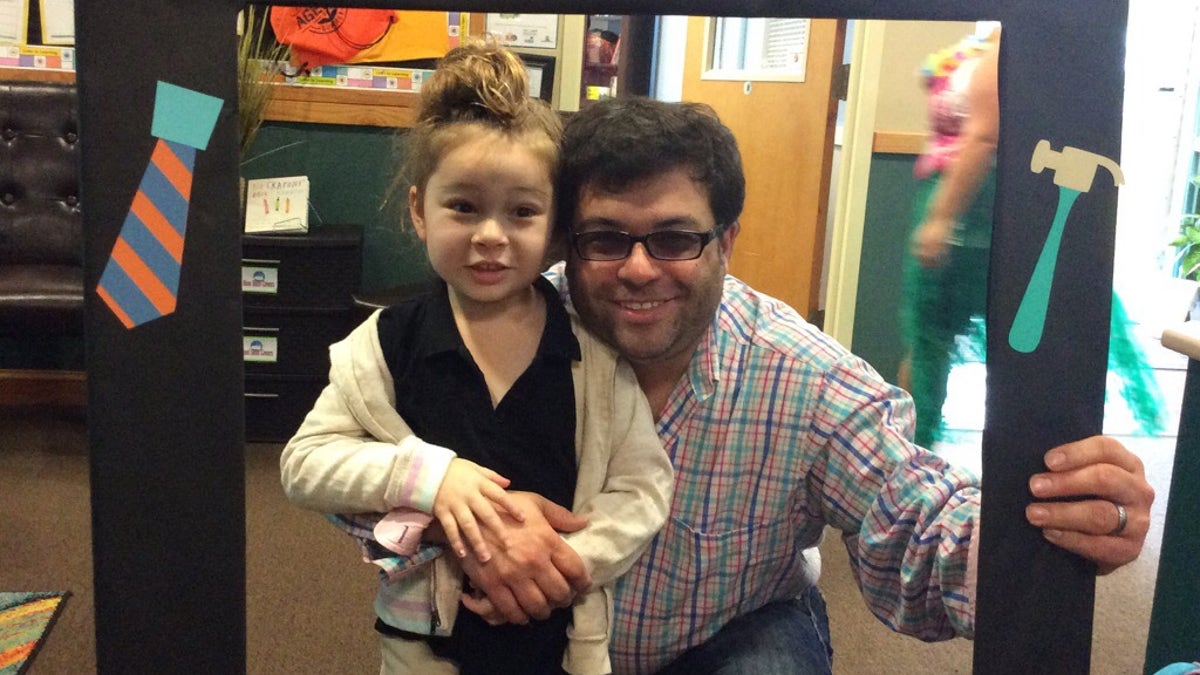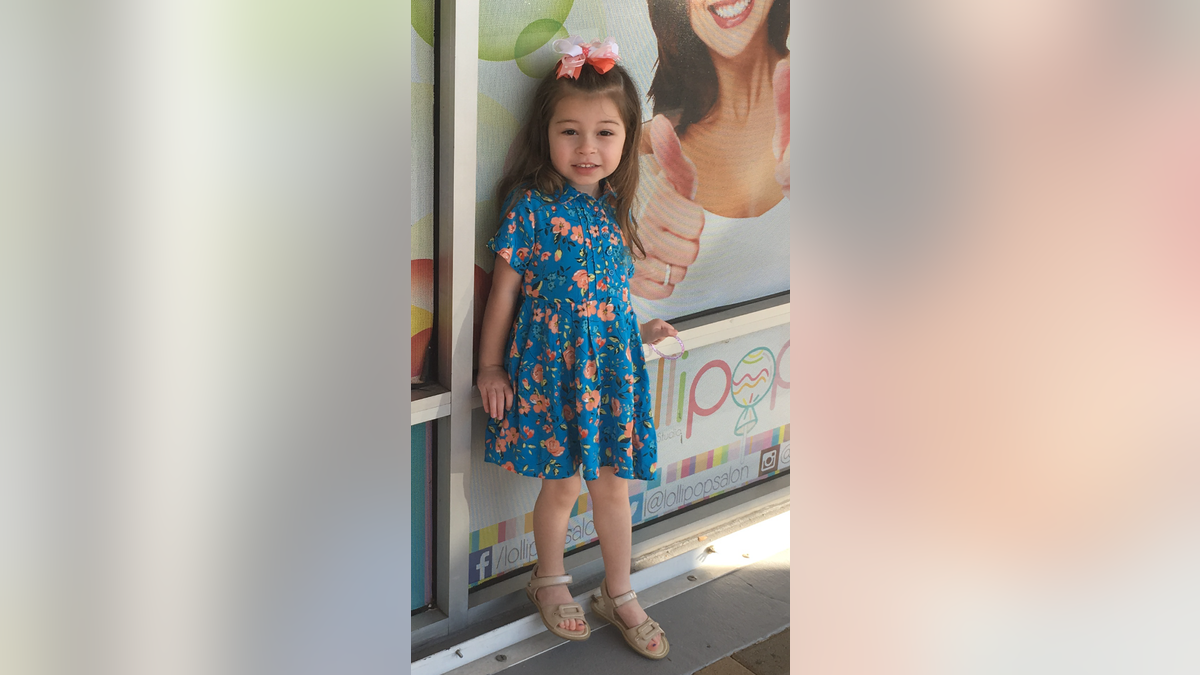
(Courtesy of the author)
Ten years ago, I would tell you I didn’t think I’d ever be a father.
I had just met the woman whom I would marry. Neither of us were spring chickens. Many of the people around us married at 18, or certainly before 20, and were having kids right away. They had their children while they were still young; they had energy enough to run after a full brood.
So when we decided we would try for a child of our own, at ages a bit older than most Americans, we figured we’d have just the one and we’d love that baby into adulthood. It wasn’t easy, but thanks to a brilliant doctor my wife and I were able to make it happen. Our beautiful daughter came into the word with a perfect face, a perfect laugh and a perfect soul.
We did what most new parents did: We ogled. We marveled. We felt every twitch and blink was an act of unique brilliance and advancement. After all, the other new parents were fooling themselves; ours was the best baby ever born.

But we noticed, even at a few months of age, our daughter didn’t like to make eye contact much. She laughed still. She cried, ate and even buckled herself through a horrible round of colic. But she took a long time, longer than other babies, to turn onto her tummy. To lift her head. To crawl. To walk. And while she could repeat things you’d tell her, and memorize the lines of cartoons and puppet programs, she didn’t “talk.” She didn’t converse.
After rounds of evaluations which lacked answers or advice, we’d return to our pediatrician only to shrug our shoulders helplessly. That’s when we were directed to a neurologist, who after brilliant and thorough testing told us what makes most parents shudder: Our beautiful child, for which we worked so hard to have and for whom we used every resource to care for, is autistic.
So, ten years ago, when not only did I think I’d never be a father, I certainly didn’t think I’d ever be the father of a child with this strange affliction. I should have considered it possible; the U.S. Centers for Disease Control and Prevention now believes one out of every 68 children born will be “on the spectrum.”
My daughter is now four years old. She has a magic smile. She doesn’t “appear” autistic in the way the myths say she should; she makes eye contact just fine. She’s verbal, though not on par with others her age. She’s creative. She loves playing with friends and loving on her teachers, her parents and grandparents. Though sometimes she’d prefer to be alone. Often she may appear lost in her own world or not participating with the group. But ask her about what’s happening and she’ll tell you everything about what you thought she wasn’t paying attention to. And that’s how autism looks when it’s inside my daughter.
A few people at her school know. But most kids and parents at school know her as the tall girl with the bright eyes and big colorful hair bows made exclusively for her by hand, by her mother, and who insists on hugging her classmates before she leaves to go home.
Very few people, however, see her refuse food by rote. Only to have me or her mother force it into her mouth to remind her she’s tasted it before, she likes it, and it’s okay to eat it.
Very few people have seen my daughter have an infamous autism meltdown. They don’t see her when she becomes overly and impulsively fixated on an inconsequential item or sound, growing intensely and exponentially frustrated and infuriated over it; only to make herself completely frightened with staccato-like hand flapping and siren-esque vocal wailing all while gasping for air that ought to fill her lungs, but won’t.
Very few people see my wife drop what she’s doing and rush across the house to her daughter who is trying desperately to understand why she’s lost control of her senses and her body. Very few people see me telling my daughter: “Just breathe. Take a breath,” or watch as I lead her through slow exhales designed not just to make her breathe again, but also to distract her young mind from whatever it is that caused her to lose her control.
Our daughter is finally receiving therapies aimed at improving her speech and communication, and to teach her how to handle her own body when it doesn’t do what she knows it’s supposed to do. It took nearly a year to get to the point where insurance would pay. I lay awake at night scared it won’t work. But I have to push that aside and do what any good father must: Make it happen.
There are enough Autism Parent blogs and advocacy groups out there who do wonderful jobs in raising awareness and pushing for government and health industry attention. I’m not sure I’d be able to add much force to the effort. But if you’ve read this far and you are a parent who thinks your kid is perfect yet abnormal, healthy yet ill, or smart yet struggling, you need to talk to the pediatrician. The sooner you get a handle on it, the better. And when you get the point you feel like you’re caught in a never-ending blindfolded nature hike, force yourself to stop and hug your baby.
I wouldn’t change my daughter for anything.
